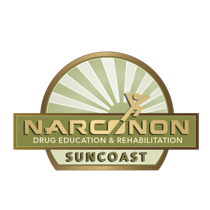Narconon Student Shares Experience with Drug Replacement Therapy

Is Methadone a good option for opiate dependence?
I am writing this as a long time opiate user, methadone patient, and recovering addict. I am hoping that through my experience, others can see that the allure and trap of drug replacement therapy further masks problems that were never and will never be resolved as long as that individual continues taking (different) drugs to try and solve their drug problem.
Like many, I was prescribed opiate medication after a high school injury. That was the first time I had tried opiates. I had been experimenting with weed before this, but after my first hydrocodone dose, I knew I had found something unlike any drug I’d ever taken. The false glow and confidence created by the chemical and the numbness of my own internal pain made it immediately my new love. The fact that after the drug wore off, I would be in deeper depression and pain didn’t seem to affect my outlook on use. I chased prescription painkillers for years after this as I slowly found myself more and more isolated from those who loved me. I became someone who would steal, lie, and deceive in order to get that feeling back. Once tolerance developed, the physical addiction brought a whole new aspect to the problem. Being constantly in a state of either numbness or physical and mental anguish when off the drug further pushes one into what seems like a hopeless situation. I remember thinking that if I could just wake up and not feel sick, quitting at this point would be easy! This is where drug replacement therapy’s ugly lies come into play. Anyone seeking “substance abuse treatment” from most psychiatric and substance abuse centers will be familiar with the idea of using either Suboxone or methadone as a way of treating addiction. They promise recovery without the pain of withdrawal. In reality, these are just opiates or opiate agonist medications, which allow the person to continue either getting high or at least stop the threat of impending physical pain while never addressing any mental, spiritual, or even physiological repair that needs to happen in order to recover.
“This medication quickly becomes ‘liquid handcuffs,’ and the withdrawal from this medication is longer, harder, and far more painful than any illicit drug.”
The initial reason is that opiates were so appealing and the problems they solved for the individual are never addressed. The likelihood of relapse back to their initial drug is very high without this work occurring. In my experience, I spent years taking my prescribed methadone and convincing myself it was my way of continuing to work my job and not fall into debilitating withdrawal. This medication quickly becomes “liquid handcuffs,” and the withdrawal from this medication is longer, harder, and far more painful than any illicit drug. You become a slave to the methadone clinics where it is dispensed, and travel or trips become something that cannot occur without setting up methadone waypoints where you can get your fix. All of this is eerily similar to the drugs you were trying to get off of in the first place—only now the effects of coming off are even worse!
It is not all doom and gloom. There is a solution, and it involves both handling the physical effects and withdrawal from the substance and addressing the psychosocial problems that predate the initial use of drugs. All over the world, there are substance abuse centers, such as Narconon, that have been doing this successfully for decades. My life has been saved from this approach, and countless others have found a final reprieve from the despair of drug and alcohol addiction there as well. If you have anyone you love who is suffering from this, or are suffering yourself, please make a decision that won’t just delay or make the problem worse.
Narconon Suncoast Student

